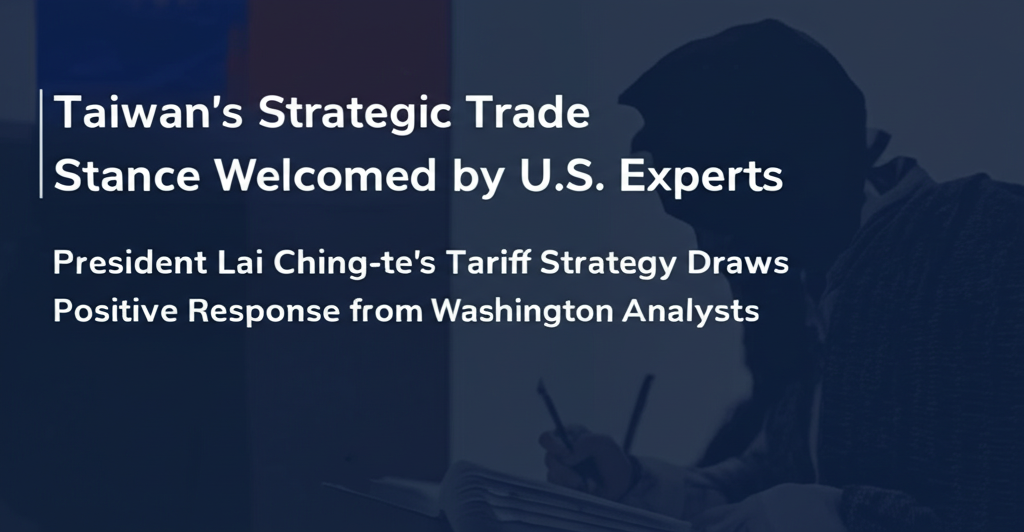Taiwan's Strategic Trade Stance Welcomed by U.S. Experts
President Lai Ching-te's Tariff Strategy Draws Positive Response from Washington Analysts

Washington, D.C. – President Lai Ching-te's (賴清德) decision to forgo retaliatory tariffs against the United States' 32 percent tariff on Taiwanese goods has been met with approval from American scholars, according to a report.
While the move is seen favorably, analysts express cautious optimism regarding Lai's ambition to emulate the USMCA (United States-Mexico-Canada Agreement) model for trade negotiations.
Former U.S. diplomat Robert S. Wang (王曉岷) suggests that President Lai's "conciliatory response" is likely to be well-received by the U.S. administration, especially compared to Beijing's swift retaliatory measures. He anticipates that Taiwan's approach will be brought to the attention of senior U.S. officials, potentially including President Trump.
Addressing the potential for a USMCA-style deal, Wang, who previously held a senior U.S. official position for APEC, indicated that initial talks could be triggered. However, these discussions might primarily focus on current tariff concerns rather than a broader long-term agreement. Wang, who is currently a senior associate with the Asia Program at the Washington-based think tank Center for Strategic and International Studies, added that Lai’s intention to explore avenues for increasing U.S. imports to Taiwan, like petroleum and agricultural products, could be a good starting point.
Stephen Ezell, vice president of the Global Innovation Policy, Information Technology and Innovation Foundation, echoed the sentiment, suggesting that the Trump administration would welcome Lai’s decision. He also foresees discussions aimed at tariff reductions between both sides. He noted, though, that the Trump administration may be inclined to implement a 10 percent baseline tariff on all incoming imported products.
Ezell considers a USMCA-type deal unlikely, viewing it as an overly intricate and time-consuming process, which might prove challenging given the current pressures on U.S. trade agencies. He suggests that a potential bilateral investment treaty might be more realistic.
Derek Scissors, a senior fellow at the American Enterprise Institute, expressed more skepticism regarding tariff negotiations, positing that tariff rates aren't determined by other countries' policies. Therefore, altering those policies wouldn't necessarily lead to U.S. tariff reductions. Scissors does not foresee a USMCA-like deal between the U.S. and Taiwan, noting President Trump's current rejection of the agreement he himself signed.
President Lai announced his government's decision not to retaliate against the U.S. tariffs, set to begin on April 9. He emphasized that Taiwanese companies' investments in the U.S. would continue as long as they align with national interests.
To mitigate the impact of the tariffs, Lai has established a negotiation team, led by Vice Premier Cheng Li-chiun (鄭麗君), to initiate formal talks with the U.S. Lai expressed the aim to achieve "zero tariffs," mirroring the USMCA.
In contrast to Taiwan's approach, China has declared its intention to impose reciprocal 34 percent tariffs on U.S. imports, beginning April 10. In response, President Trump announced the U.S. would impose an additional 50 percent tariff on Chinese imports if China does not withdraw its retaliatory import duty plan.
